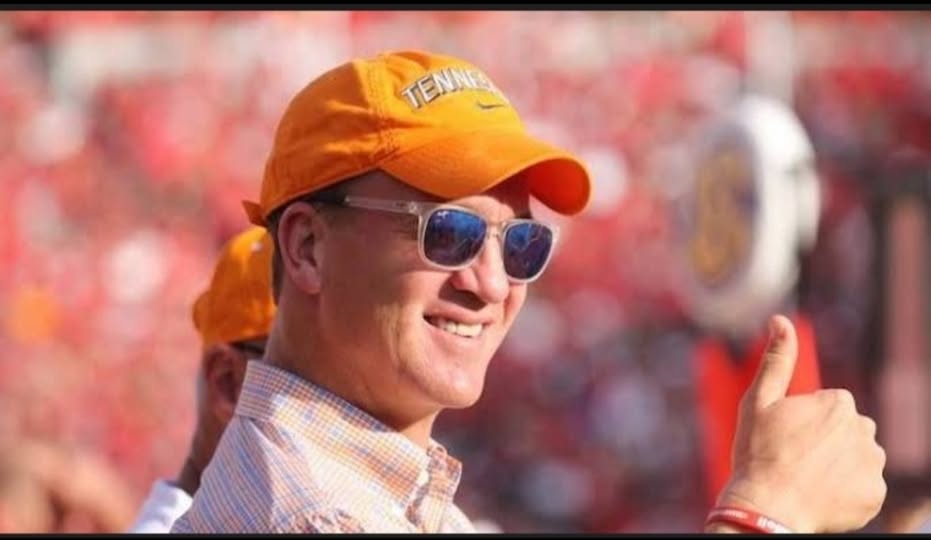ALUMNI SPOTLIGHT: Gridiron Great and Diamond Icon – Two Former Vols
The University of Tennessee has long been a crucible for athletic excellence. Nestled in Knoxville, where the echoes of “Rocky Top” reverberate from Neyland Stadium to Lindsey Nelson Stadium, Tennessee has produced legends across all fields of play. In this alumni spotlight, we delve into the legacies of two standout former Volunteers whose names continue to resonate: a gridiron great who left an indelible mark on Tennessee football and the NFL, and a diamond icon who elevated the university’s baseball program before embarking on a professional journey. These two alumni exemplify what it means to wear the orange and white—not just in how they played, but in how they represented the spirit, grit, and tradition of Volunteer athletics.
Our journey begins on the football field with a player whose presence defined an era. A name synonymous with determination, leadership, and poise under pressure: Peyton Manning. Arriving at Tennessee in 1994, Manning quickly became the face of the program, capturing the hearts of fans and rewriting the record books. His career in Knoxville was marked by a relentless pursuit of perfection. While he famously never beat Florida during his time as a Vol, what Manning did accomplish speaks volumes. He led Tennessee to an SEC Championship in 1997 and finished his collegiate career with 11,201 passing yards and 89 touchdowns.
More than just his stats, it was Manning’s approach to the game—his preparation, his understanding of the offense, and his on-field command—that made him a generational talent. He wasn’t just a quarterback; he was a coach on the field, a student of the game, and a leader in the locker room. That 1997 season, when he returned for his senior year instead of declaring early for the NFL Draft, showed his deep loyalty to the program and his teammates. He left Tennessee not only with a degree in speech communication but as the most decorated quarterback in school history, receiving the Maxwell Award, the Davey O’Brien Award, and finishing as a Heisman Trophy runner-up.
Manning’s professional career would only add to his legend. Drafted first overall by the Indianapolis Colts in 1998, he went on to become one of the most successful quarterbacks in NFL history. With two Super Bowl titles, five MVP awards, and 14 Pro Bowl selections, Manning’s NFL résumé is nothing short of historic. Yet, even at the height of his professional success, his connection to Tennessee never wavered. He has been a benefactor to the university, made frequent returns to Knoxville, and served as a mentor to younger players. The Peyton Manning Scholarship at UT continues to support students who exemplify academic achievement, leadership, and community service.
His enshrinement in both the College Football Hall of Fame and Pro Football Hall of Fame cements his legacy, but for Vol fans, it’s his commitment to Tennessee—before, during, and after his career—that truly defines his greatness. He embodied the Volunteer spirit, and in doing so, helped elevate the Tennessee football program to national prominence.
While Manning ruled the gridiron, another Tennessee legend was making his mark on the diamond. Todd Helton, a Knoxville native and multi-sport star, became a cornerstone of the Tennessee baseball program in the early 1990s. Like Manning, Helton was a gifted athlete, playing both baseball and football for the Volunteers. In fact, Helton served as the starting quarterback for a time before a certain No. 16—Peyton Manning—took over the reins. But it was on the baseball field where Helton’s talent truly flourished.
Helton’s career at Tennessee was a masterclass in consistency, power, and leadership. From 1993 to 1995, he was one of the most feared hitters in college baseball. He finished his collegiate career with a .370 batting average, 38 home runs, and 238 RBIs—numbers that still rank among the best in program history. In 1995, he was named National Collegiate Player of the Year and helped guide the Vols to a College World Series appearance, their first in over four decades.
Helton’s impact on Tennessee baseball cannot be overstated. Before his arrival, the program had struggled to find national relevance. With Helton anchoring the lineup and playing gold-glove caliber defense at first base, Tennessee became a contender. He brought attention, credibility, and excitement to a program that would go on to sustain success in the years following his departure.
His transition to the professional ranks was seamless. Drafted eighth overall by the Colorado Rockies in 1995, Helton would go on to become the face of the franchise for nearly two decades. Over his 17-year MLB career, he compiled 2,519 hits, 369 home runs, and a career .316 batting average. He was a five-time All-Star, a four-time Silver Slugger, and a three-time Gold Glove winner. Helton’s plate discipline, clutch hitting, and defensive prowess made him one of the most complete first basemen of his era.
Like Manning, Helton’s roots remained deep in Tennessee. Despite his fame and fortune in the majors, he always spoke fondly of his time in Knoxville and the university that helped shape him. He has remained involved with the UT baseball program, mentoring players and supporting the team during its resurgence in recent years under head coach Tony Vitello. Helton’s jersey number 3 was retired by the university in 2021, a testament to his lasting legacy and the respect he commands among Vol fans and athletes alike.
Helton’s recent induction into the National Baseball Hall of Fame in 2024 was a proud moment not just for Rockies fans, but for the entire Tennessee community. He became the first UT baseball player to receive the sport’s highest honor, a reflection of both his incredible statistics and the respect he garnered from peers and opponents alike. It also marked a significant milestone for the university, which now boasts Hall of Famers in both football and baseball, thanks to Manning and Helton.
Together, these two icons represent the best of what Tennessee athletics can offer. One a quarterback who revolutionized the position with his intellect and precision, the other a slugger whose quiet consistency made him a pillar of excellence. Both made their marks in orange and white before conquering the professional ranks. Both returned to their alma mater, not for headlines or applause, but to give back, to teach, and to inspire.
Their legacies are more than just numbers and accolades. They are found in the young athletes who dream of following in their footsteps. In the fans who still wear their jerseys on fall Saturdays or spring afternoons. In the halls of UT athletic facilities, where their photos, awards, and stories continue to inspire.
In the ever-evolving landscape of college athletics, where loyalty can be fleeting and legacy often short-lived, Peyton Manning and Todd Helton remind us of the enduring power of commitment, humility, and excellence. They are not just former Vols—they are standard-bearers of a tradition that continues to thrive.
The University of Tennessee has many distinguished alumni, but few have carried the mantle as gracefully and impactfully as Manning and Helton. They were champions on the field, ambassadors off of it, and remain cornerstones of the Volunteer legacy. As new generations of athletes walk the same halls, wear the same uniforms, and step onto the same fields, they do so in the shadows of giants—giants who once called Knoxville home, and in every meaningful way, still do.



